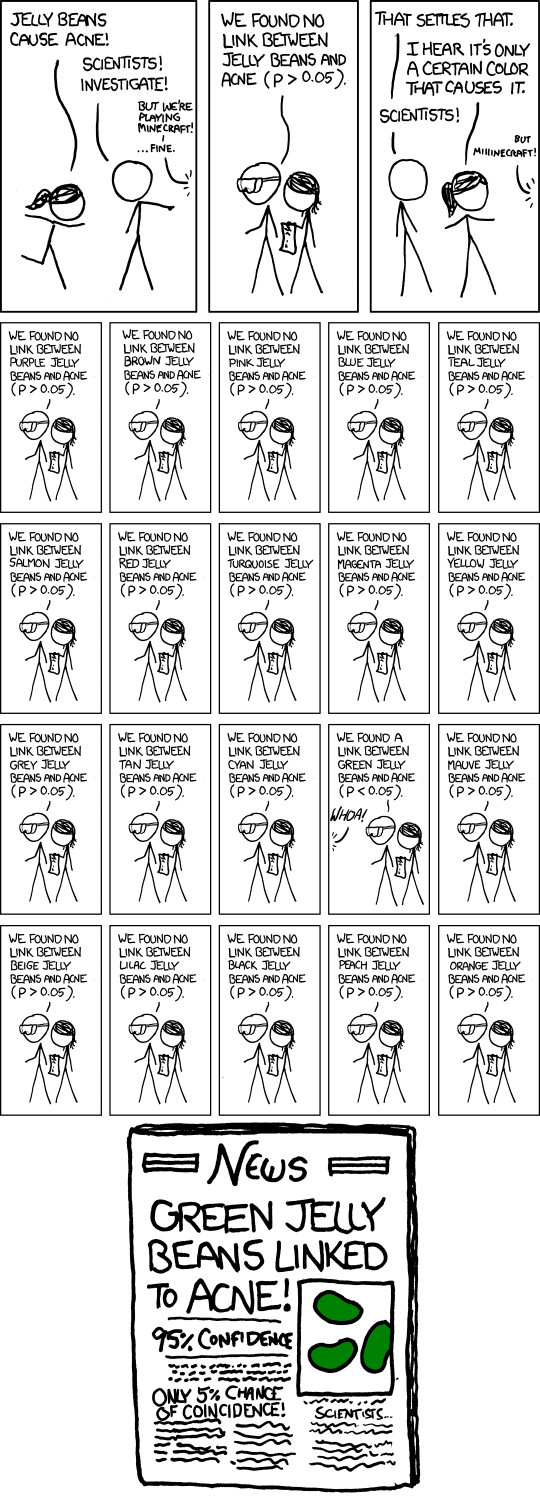This cartoon from XKCD is wonderful:
Dr. Weeks is a Professor of Human Genetics and Biostatistics at the University of Pittsburgh. His research focuses on statistical human genetics in the area of mapping susceptibility loci involved in complex human diseases. The content on this blog is for informational purposes only - use at your own risk!
Monday, September 12, 2011
"Any claim coming from an observational study is most likely to be wrong"
This article from the journal "Significance"
Deming, data and observational studies
Author: S. Stanley Young, Alan Karr
Published: Aug 25, 2011 - From issue: Volume 8 Issue 3 (September 2011)
Doi: 10.1111/j.1740-9713.2011.00506.x
suggests a process control-based solution for improving the success rate of observational studies.
To better appreciate the problem of multiple testing, they suggest visiting Jery Dallal's simulation web page, which illustrates what happens when one carries out "100 Independent 0.05 Level Tests For An Effect Where None Is Present".
Deming, data and observational studies
Author: S. Stanley Young, Alan Karr
Published: Aug 25, 2011 - From issue: Volume 8 Issue 3 (September 2011)
Doi: 10.1111/j.1740-9713.2011.00506.x
suggests a process control-based solution for improving the success rate of observational studies.
To better appreciate the problem of multiple testing, they suggest visiting Jery Dallal's simulation web page, which illustrates what happens when one carries out "100 Independent 0.05 Level Tests For An Effect Where None Is Present".
Thursday, September 8, 2011
Forensic bioinformatics
I like this phrase, "Forensic bioinformatics", that Keith Baggerly and Kevin Coombes have defined:
"Data processing, however, is often not described well enough to allow for exact reproduction of the results, leading to exercises in “forensic bioinformatics” where aspects of raw data and reported results are used to infer what methods must have been employed."
in this paper here.
"Data processing, however, is often not described well enough to allow for exact reproduction of the results, leading to exercises in “forensic bioinformatics” where aspects of raw data and reported results are used to infer what methods must have been employed."
in this paper here.
Computing for Statistical Genetics: nice R slides
Thomas Lumley and Ken Rice have made a very nice set of "Computing for Statistical Genetics" slides on R that they prepared for the European Institute in Statistical Genetics. This set of slides is available here.
Subscribe to:
Comments (Atom)

